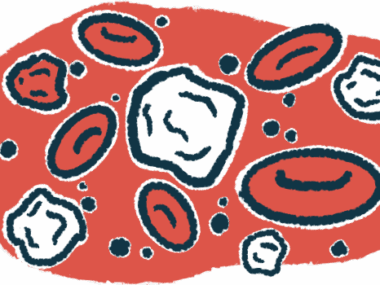Soliris approved in China for adults with hard-to-treat generalized MG
First complement inhibitor for myasthenia gravis patients in the country
Written by |
Regulators in China approved Soliris (eculizumab) for adults with hard-to-treat (refractory) generalized myasthenia gravis (gMG) who test positive for anti-acetylcholine receptor (AChR) antibodies.
With this approval, Soliris is now the first complement inhibitor available to treat gMG in the country, according to AstraZeneca, the company that markets the medication.
The medication already is available in China for use by people with paroxysmal nocturnal hemoglobinuria (PNH) and atypical hemolytic uremic syndrome (aHUS), and it’s approved for many indications in other countries.
Soliris to aid myasthenia gravis patients who respond poorly to other treatments
An autoimmune disease, gMG is caused by misdirected attacks, driven by self-reactive antibodies, that disrupt the normal communication between nerves and muscles, leading to muscle weakness and fatigue. In about four out of five cases, these antibodies are directed against AChR.
While no cure currently exists, available treatments can help to ease disease symptoms. Most patients respond well to these medications, but symptoms can continue in those who do not.
“For some gMG patients, standard treatments such as immunosuppressants may not sufficiently control the disease, leaving patients at risk of serious complications,” Yan Chuanzhu, MD, deputy president and director of the department of neurology at Qilu Hospital of Shandong University in Jinan, said in a company press release.
“The approval of Soliris is an important milestone for the gMG community in China, offering a targeted treatment option with significant clinical data and extensive real-world evidence shown to improve the ability to perform activities of daily living and support quality of life,” Chuanzhu added.
Soliris is an antibody that’s designed to bind and prevent the cleavage of the C5 complement protein, which is a part of the body’s complement system — a front-line immune defense pathway that becomes overly active in diseases like gMG.
By preventing C5 cleavage, Soliris effectively blocks the activation of the complement system, which is thought to contribute to the damaging immune response seen in gMG, thereby helping to ease symptoms.
Its approval in China was based on data from the Phase 3 REGAIN trial (NCT01997229). Data from REGAIN showed that Soliris provided benefits to adults with gMG who had failed to respond fully to other treatments and were experiencing mild to severe symptoms.
“Symptoms of gMG, including difficulties seeing, walking, talking, swallowing and breathing, can have a debilitating impact on daily life for patients and their families, representing a critical need for therapeutic advances,” said Marc Dunoyer, CEO of Alexion Pharmaceuticals, now part of AstraZeneca.
Sponsored by Alexion, the trial enrolled 125 adults with gMG who tested positive for anti-AChR antibodies. About six months of treatment with Soliris led to less severe symptoms, and these benefits were sustained over time in an open-label extension study (NCT02301624).
The treatment was generally safe compared with a placebo. The most common side effects reported during the study were headache and upper respiratory tract infection.
“We are proud to offer Soliris in China, a first-in-class C5 complement inhibitor and globally established treatment for gMG. We remain committed to expanding access to innovative therapies for rare disease patients in China and around the world,” Dunoyer said.




Leave a comment
Fill in the required fields to post. Your email address will not be published.